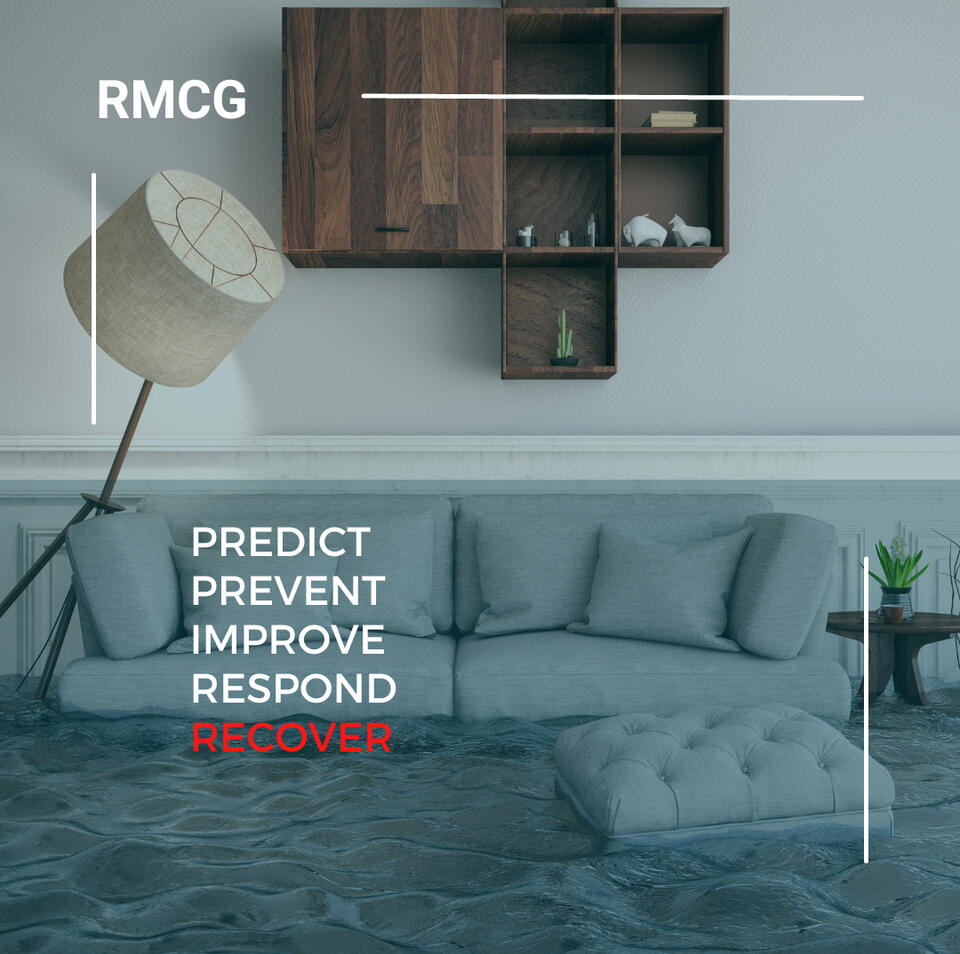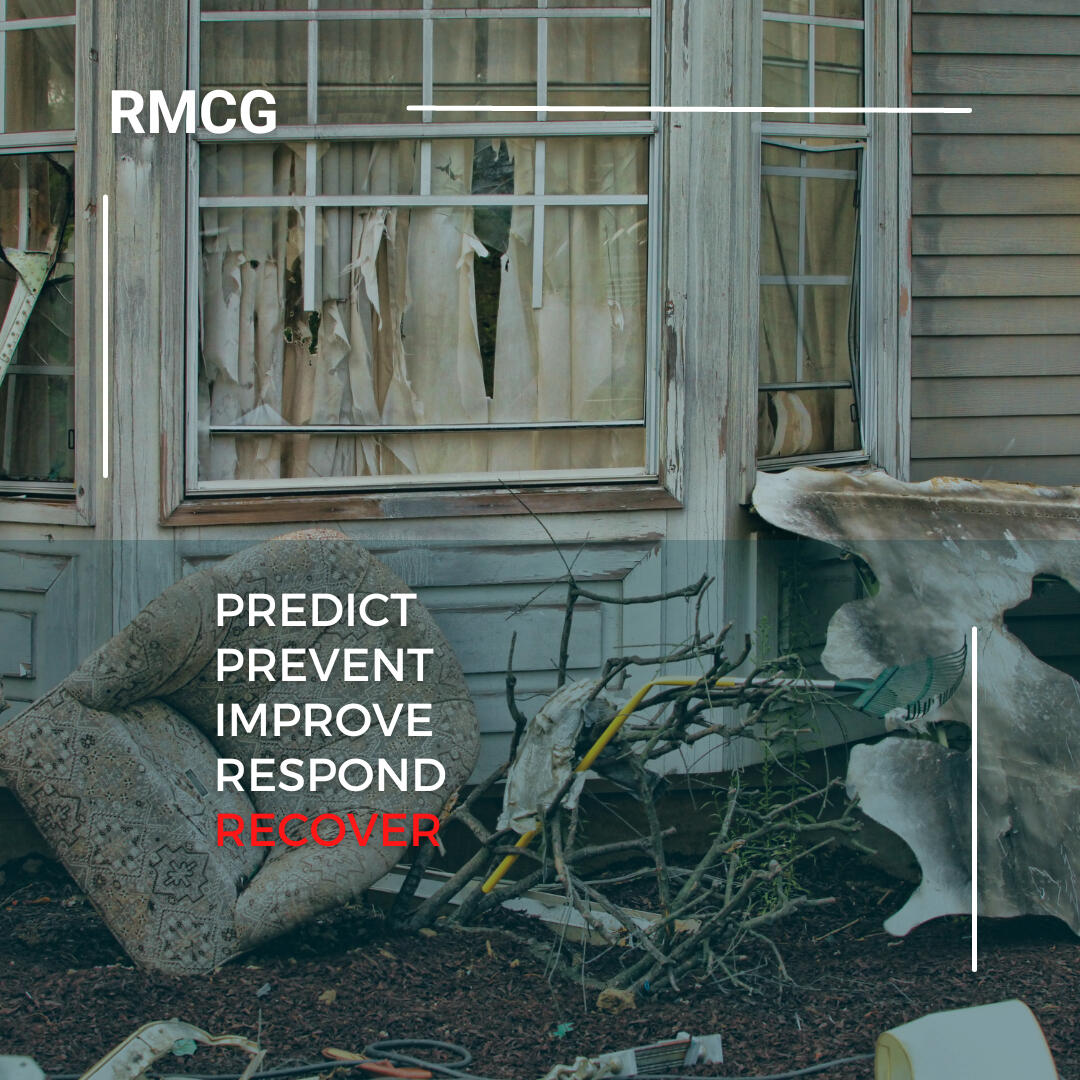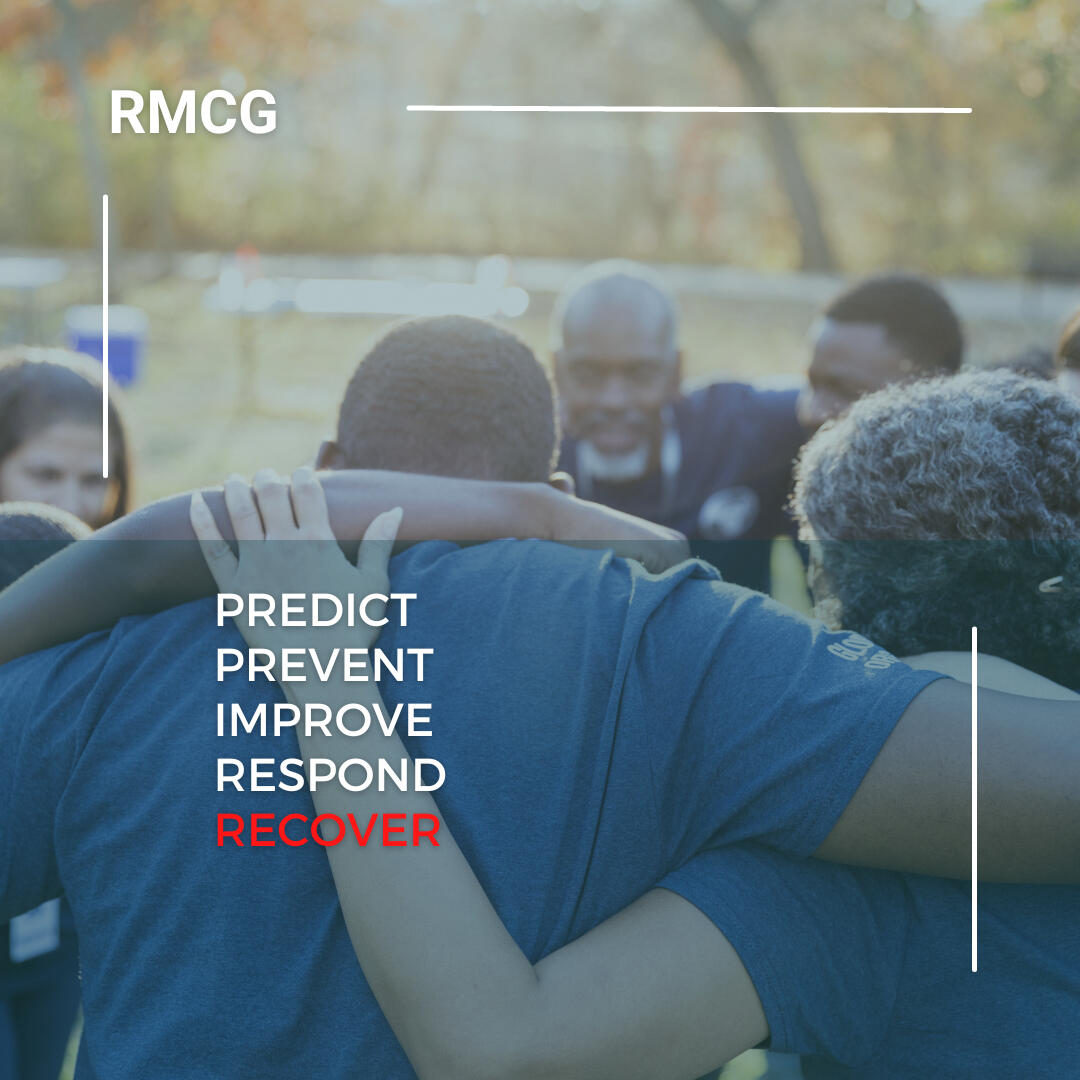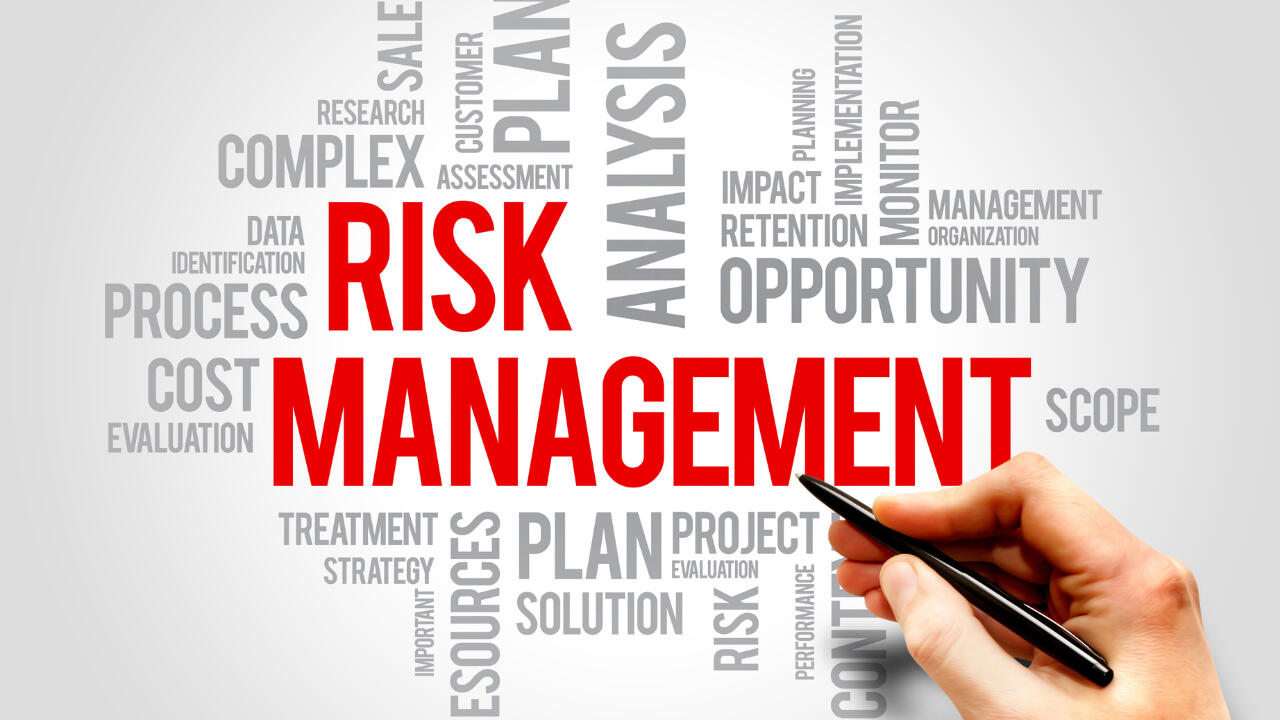
Risk Management Consulting Group
If an emergency happened today, would you be ready?
Fire, flooding, severe weather, power outages, violent intruder, and so many more types of emergencies affect our communities daily. Our job is to help you figure out your plan, your response, and how you will recover from these disasters.
Planning
Let's get started.
Disasters and emergencies are bound to happen. The question is, are you ready? You should not wait to plan for all types of hazards which can affect your business, organization, and even your family. Whether it’s a house of worship or a nonprofit facility, the premise is the same, get ready. We will help you map out why emergencies can affect you and help you plan for them.

Mitigation
You can’t stop it, but you can ease the blow.
You can’t stop a flood, a wildfire, or even an power outage. However, with plans in place, you can lessen the damage so you can recover quicker. While some things are out of your control, we can help you feel empowered by discussing what disasters can do to your church, business and organization.
Preparedness
Breathe easy, you got this.
Your plan is in place, you’ve mentally run through all scenarios, and you’re ready for the hazards ahead. Reviewing plans and practicing drills are all under your belt putting your mind at ease for what may lie ahead. Not quite there yet? Let us help you get on the right track. Feeling like a superhero in this area? Let us help you improve your plans.
Response
Into the thick of it…
It’s time to put your plans into action. This can be the most dangerous, complicated, scary, and frustrating time of the disaster. There is mess to be cleaned up, damages to navigate, people to help, and much more. Let us help you alleviate some of that stress by walking you through a proper response plan that will help you get back on track.
Recovery
The disaster is over, now what?
When the smoke has cleared and the dust has settled, now is the time to focus on what matters the most. During the recovery phase, you may need to deal with loss of property, family reunification, and even loss of life. You may need to prepare a press release or hire people to help navigate a new normal.
We are here to help you figure out strategies and solutions that will take the stress and worry out of what comes during the recovery phase.

consulting services
What's the next step?
Below is a list of areas that we can assist you with. Select any of the following packages that will allow us to assist your emergency preparedness needs. If you have questions, please reach out to us.
Emergency Preparedness
Risk & Threat Assessment
Security Plans/Building Safety
Disaster Response
Business Continuity
Leadership Training
Cyber Risk Assessment
Houses of worship security and preparedness assessment
$200
This service provides a one-on-one consultation which will include an assessment on your security procedures and emergency preparedness. This service is designed to guide you through potential risks and vulnerabilities. At the end of the assessment, a report will be provided which includes action items and next steps.
entry level package
$350
In this 1-hour consultation session, we will discuss your emergency preparedness needs and determine the next steps to be fully prepared as a business, non-profit, or local community. Includes a document of analysis by RMCG and preparedness plan template.
mid level package
$650
Everything from the entry level package PLUS
1 hour leadership training (topics vary based on need)
Premium level package
$1,500
You will be provided with a 1.5 hour consultation session and risk assessment. A 2 hour leadership training will be taught on-site and emergency planning documents will be provided.
Risk Management News

About us
Our Founder & CEO
Raynika Battle is the CEO and founder of Risk Management Consulting Group. She holds a certification from the Michigan State Police Department of Emergency Management and Homeland Security as a Professional Emergency Manager. With over six years of experience in the field, Raynika has taught countless businesses, organizations, and Individuals how to be prepared for disasters and emergencies.Executive Director for Do1Thing 2016-2022 (nonprofit emergency preparedness program) and Regional Planner for the City of Lansing Office of Emergency Management. Raynika spent over five years presenting, teaching, and training individuals, businesses, churches, and nonprofit organizations how to be prepared for disasters and emergencies. As a stakeholder in community for emergency preparedness, Raynika has served on committees for the City of Lansing Mayor’s Office, District 1 Regional Medical Response Coalition, Michigan State Police Emergency Management and Homeland Security Division, and more.Professional Emergency Manager certified by the Michigan State Police Emergency Management and Homeland Security Division.Community Emergency Response Team (CERT) member 2016-2022
Speaker at the Ontario Emergency Managers Conference in Toronto CanadaCreated online emergency preparedness course for individuals to prepare themselves and their communities.

If you are interested in me speaking at your workshop, training, or conference, click the button below to complete a speakers request form.
CONTACT US
Need more information?
contact us for large group inquiries and retainer information.
© 2024 Risk Management Consulting Group LLC. All rights reserved.
Risk Management News

September 29, 2025Strengthening Security While Preserving Mission: Protecting Our Most Vulnerable Spacesby Raynika Battle
Our hearts and prayers are with the victims, families, and communities affected by these senseless acts of violence.A Nation in Mourning
As we write this, our nation is reeling from two devastating attacks on sacred spaces where people gather in faith, learning, and community. Yesterday's attack at The Church of Jesus Christ of Latter-day Saints in Grand Blanc, Michigan, claimed at least four lives and injured eight others, with the gunman also setting the building on fire. This tragedy follows closely on the heels of the August 27th shooting at Annunciation Catholic Church in Minneapolis, where two children lost their lives and 18 others were wounded during a school Mass.
These attacks represent a disturbing pattern that demands immediate action from every institution that serves vulnerable populations. The numbers tell a sobering story: depending on the database used, there were between 8 and 146 incidents of gun violence at schools across the US in 2025. Meanwhile, a total of 300 people have been killed and 1,353 people have been wounded in 308 shootings as of August 31, 2025.When Sacred Spaces Become Targets
Houses of worship and schools have historically been viewed as sanctuaries—places where communities gather in trust, openness, and vulnerability. Yet these very qualities that make them cornerstones of our society also make them attractive targets for those who seek to cause maximum harm and trauma.
The recent attacks highlight several critical vulnerabilities:
Open Access Policies: Most religious institutions and educational facilities maintain welcoming, accessible environments that can be difficult to secure without compromising their mission and values.
Predictable Gatherings: Regular service times, school schedules, and community events create predictable patterns that potential attackers can exploit.
Limited Security Infrastructure: Many faith-based and educational organizations operate with minimal security measures due to budget constraints or philosophical concerns about creating fortress-like environments.
Vulnerable Populations: Children, elderly congregants, and families create heightened responsibility for protection while presenting unique evacuation and response challenges.The Urgent Call for Comprehensive Risk Assessment
In the wake of these tragedies, every school administrator, religious leader, and board member must ask themselves difficult questions:When did we last conduct a comprehensive security assessment?
Do we have current, practiced emergency response protocols?
Are our staff and volunteers trained to recognize and respond to threats?
Have we engaged with local law enforcement to understand our specific vulnerabilities?
Do our physical spaces include adequate security measures without compromising our welcoming mission?The time for hoping "it won't happen here" has passed. The Grand Blanc Community Schools System's decision to close all 13 campuses following Sunday's church attack demonstrates how violence in one community institution impacts all others. This interconnectedness means that threats to any gathering place affect the safety and peace of mind of entire communities.A Balanced Approach: Security Without Fear
At Risk Management Consulting Group, we understand the delicate balance required to protect sacred and educational spaces while preserving their essential character. Our faith informs our commitment to creating environments where people can worship, learn, and gather without fear, while maintaining the openness and accessibility that define these vital institutions.
Effective security for schools and houses of worship requires:
Comprehensive Risk Assessment: Understanding your unique vulnerabilities, from physical layout to community dynamics, forms the foundation of any effective security strategy.
Layered Security Approach: Multiple protective measures working together create more effective defense than any single solution.
Community-Centered Planning: Security measures must align with your institution's values and mission while addressing real threats.
Training and Preparedness: Staff, volunteers, and community members need regular training on recognition, response, and recovery procedures.
Technology Integration: Modern security solutions can enhance protection while remaining unobtrusive to daily operations.
Crisis Communication: Clear, practiced communication protocols ensure coordinated response and accurate information sharing during emergencies.Moving Forward with Faith and Vigilance
As we pray for the victims and families affected by these recent tragedies, we must also commit to action. The Birmingham congregation in Grand Blanc, the Annunciation school community in Minneapolis, and countless other institutions across our nation deserve protection that allows them to fulfill their sacred missions without compromise.
We cannot prevent every act of violence, but we can significantly reduce vulnerabilities and improve response capabilities through thoughtful, professional security planning. This is not about creating fear or barriers—it's about stewarding the trust placed in us by those who enter our doors seeking education, spiritual growth, and community.Our Commitment to Your Safety
The dedicated professionals at Risk Management Consulting Group have spent decades helping educational institutions and houses of worship develop comprehensive security strategies that honor both safety and mission. We understand that every organization is unique, facing distinct challenges that require customized solutions.
In these difficult times, we're reminded that preparation is an act of love for those we serve. By taking proactive steps to assess and address security vulnerabilities, we demonstrate our commitment to protecting the precious lives entrusted to our care.
Our thoughts and prayers remain with all those affected by recent violence. May we honor their memory and suffering by taking decisive action to protect others from similar tragedies.For a confidential consultation about security assessments and emergency preparedness planning for your institution, contact Risk Management Consulting Group at info@riskmcgroup.com. Let us help you create comprehensive protection strategies that preserve your mission while safeguarding your community.
"The Lord is my shepherd; I shall not want... Even though I walk through the valley of the shadow of death, I will fear no evil, for you are with me." - Psalm 23:1, 4
The Importance of Disaster Preparedness for College Students Living on Campus
by Raynika Battle
Embarking on the college journey often means leaving the familiar comforts of home and stepping into a world of independence. For many students, living on campus is an exciting experience filled with new opportunities and challenges. However, being away from home also means taking on the responsibility of ensuring your own safety, especially when it comes to disasters and emergencies. Preparing for unexpected events is crucial for college students, as it can make the difference between panic and confident action when faced with a crisis.Several years ago, I had the opportunity to talk with and help some college students at Michigan State University about preparing for disasters. I can say confidently that 80% of the students I talked to did not have a plan if they didn’t have cell phone service to call home during or after a disaster. However most were aware of the types of supplies they needed to have on hand.Being prepared starts with having the right supplies on hand. An emergency kit tailored to your needs is a fundamental step in disaster readiness. Here is a list of suggested items.1. First-Aid Kit: Include bandages, antiseptic wipes, pain relievers, and any personal medications.2. Flashlight and Extra Batteries: Power outages can occur during storms or other emergencies.3. Non-Perishable Food and Water: At least a three-day supply to sustain you if dining services are unavailable.4. Whistle: Useful for signaling for help if you're trapped or need to alert others.5. Blanket or Thermal Blanket**: To keep warm if heating systems fail.6. Important Documents: Identification or driver’s license, student ID, passport copies, medical Information, health insurance cards, list of medications, and any allergies.7. Emergency Contacts: A list of phone numbers and addresses for family, close friends, and doctors. You can list them in your phone as emergency contacts.8. Battery-Powered or Hand-Crank Radio: To receive news updates if internet and cell service are down.9. Personal Items: keep cash such as small bills and coins, as ATMs might not function during power outages. Comfort items such as a favorite book or game to help reduce stress during an emergency.Don’t wait until the last minute to prepare. Having a plan in place is as important as having the right supplies. It ensures you know what to do and where to go when disaster strikes.Look at these list of tips to prepare yourself mentally on what you should do during a disaster.1. Familiarize Yourself with campus emergency procedures:
- Evacuation Routes: Know at least two ways out of your dorm and main academic buildings.
- Emergency Assembly Points: Identify safe locations where you should gather after evacuating.
- Shelter-in-Place Locations: Know where to go during severe weather or other situations requiring you to stay indoors.2. Develop a Personal Emergency Plan. Personal is the key word here as plans will look different from person to person. A person who has access to a vehicle versus someone who may have mobility issues will look different.
- Communication Strategy: Decide how you will contact family and friends. Text messaging might be more reliable than calls.
- Roommate Coordination: Discuss emergency plans with roommates to ensure everyone is on the same page.
- Practice Drills: Regularly review and rehearse your plan to make it second nature.3. Stay Informed: One of those most important things to remember is your safety is dependent on what you know.
- Sign Up for Alerts: Many universities offer text or email notifications for emergencies. Parents can also sign up for these alerts if available.
- Monitor Local News: Stay updated on weather conditions and other potential threats.
- Know the Risks: Understand the types of disasters common in your area, such as earthquakes, hurricanes, or tornadoes.Disaster preparedness is a shared responsibility that begins with individual action and is supported by institutional planning. As a college student living on campus, taking the initiative to prepare for emergencies not only enhances your safety but also contributes to the overall resilience of the campus community. By assembling an emergency kit, developing a personal plan, and understanding your university's role in disaster response, you position yourself to handle unforeseen events with confidence and composure. Remember, preparedness is not about panic; it's about empowerment and ensuring that you can continue your educational journey safely, no matter what challenges arise.